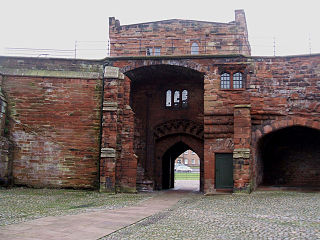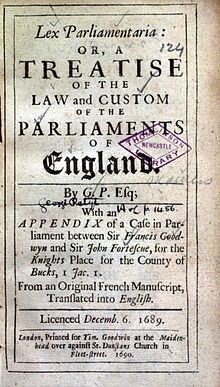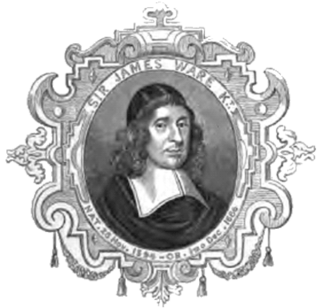
Parliamentary procedure is the body of rules, ethics and customs governing meetings and other operations of clubs, organizations, legislative bodies and other deliberative assemblies.
A parliamentary authority is a book of rules on conducting business in deliberative assemblies. A group generally creates its own rules and then adopts such a book to cover meeting procedure not covered in its rules. Different books have been used by organizations and by legislative assemblies.

A Manual of Parliamentary Practice for the Use of the Senate of the United States, written by Thomas Jefferson in 1801, is the first American book on parliamentary procedure. As Vice President of the United States, Jefferson served as the Senate's presiding officer from 1797 to 1801. Throughout these four years, Jefferson worked on various texts and, in early 1800, started to assemble them into a single manuscript for the Senate's use. In December 1800 he delivered his manuscript to printer Samuel Harrison Smith, who delivered the final product to Jefferson on 27 February 1801.
Dorchester was a parliamentary constituency centred on the town of Dorchester in Dorset. It returned two Members of Parliament to the House of Commons of the Parliament of the United Kingdom from 1295 to 1868, when its representation was reduced one member.
Richard Newport, 1st Baron Newport was an English landowner and politician who sat in the House of Commons at various times between 1614 and 1629. He supported the Royalist cause in the English Civil War and was created Baron Newport in 1642.
Callington was a rotten borough in Cornwall which returned two Members of Parliament to the House of Commons in the English and later British Parliament from 1585 to 1832, when it was abolished by the Reform Act 1832.
Lostwithiel was a rotten borough in Cornwall which returned two Members of Parliament to the House of Commons in the English and later British Parliament from 1304 to 1832, when it was abolished by the Great Reform Act.
Dorset was a county constituency covering Dorset in southern England, which elected two Members of Parliament (MPs), traditionally known as knights of the shire, to the House of Commons of England from 1290 until 1707, to the House of Commons of Great Britain from 1707 to 1800, and to the House of Commons of the United Kingdom until 1832.
Minehead was a parliamentary borough in Somerset, forming part of the town of Minehead, which elected two Members of Parliament (MPs) to the House of Commons from 1563 until 1832, when the borough was abolished by the Great Reform Act.
Somerset was a parliamentary constituency in Somerset, which returned two Members of Parliament (MPs), known traditionally as knights of the shire, to the House of Commons of England until 1707, the House of Commons of Great Britain from 1707 to 1800, and the House of Commons of the United Kingdom from 1801 to 1832.
The history of parliamentary procedure refers to the origins and evolution of parliamentary law used by deliberative assemblies.

John Fortescue Aland, 1st Baron Fortescue of Credan, of Stapleford Abbots, Essex, was an English lawyer, judge and politician who sat in the House of Commons for two years from 1715 to 1717. He wrote on English legal and constitutional history, and was said to have influenced Thomas Jefferson. A member of both the Middle Temple and Inner Temple, he became a King's Counsel in 1714 and was then appointed Solicitor General, first to the Prince of Wales and then to his father George I in 1715. After a short stint as a Member of Parliament, Fortescue Aland was knighted and elevated to the Bench as a Baron of the Exchequer in 1717. He was subsequently a justice of the Court of King's Bench (1718–1727) and of the Court of Common Pleas (1728–1746), save for a brief hiatus between 1727 and 1728 which has been attributed to George II's displeasure with one of his legal opinions.

The House of Commons of England was the lower house of the Parliament of England from its development in the 14th century to the union of England and Scotland in 1707, when it was replaced by the House of Commons of Great Britain. In 1801, with the union of Great Britain and Ireland, that house was in turn replaced by the House of Commons of the United Kingdom.

Sir George Dalston (1581–1657) was an English politician who sat in the House of Commons of England between 1621 and 1643. He supported the Royalist cause in the English Civil War.

The Happy Parliament was the fourth and last Parliament of England of the reign of James I of England, summoned in 30 December 1623, sitting from 19 February 1624 to 29 May 1624, and thereafter kept out of session with repeated prorogations, it was dissolved on the death of the King on 27 March 1625. The Speaker of the House of Commons was Sir Thomas Crewe, the member for Aylesbury.
Richard Cresheld was an English judge and politician who sat in the House of Commons variously between 1624 and 1648.
Sir Robert Pye (1585–1662) was an English courtier, administrator and politician who sat in the House of Commons between 1621 and 1629. He supported the Royalist cause in the English Civil War.
George Buller was an English politician who sat in the House of Commons from 1640 to 1646.

Sir William Whitelock KC was an English Tory gentleman, barrister, and Member of Parliament. His name is also spelt Whitelocke and Whitlock.
Before the Acts of Union 1707, the barons of the shire of Kinross elected commissioners to represent them in the unicameral Parliament of Scotland and in the Convention of the Estates.









